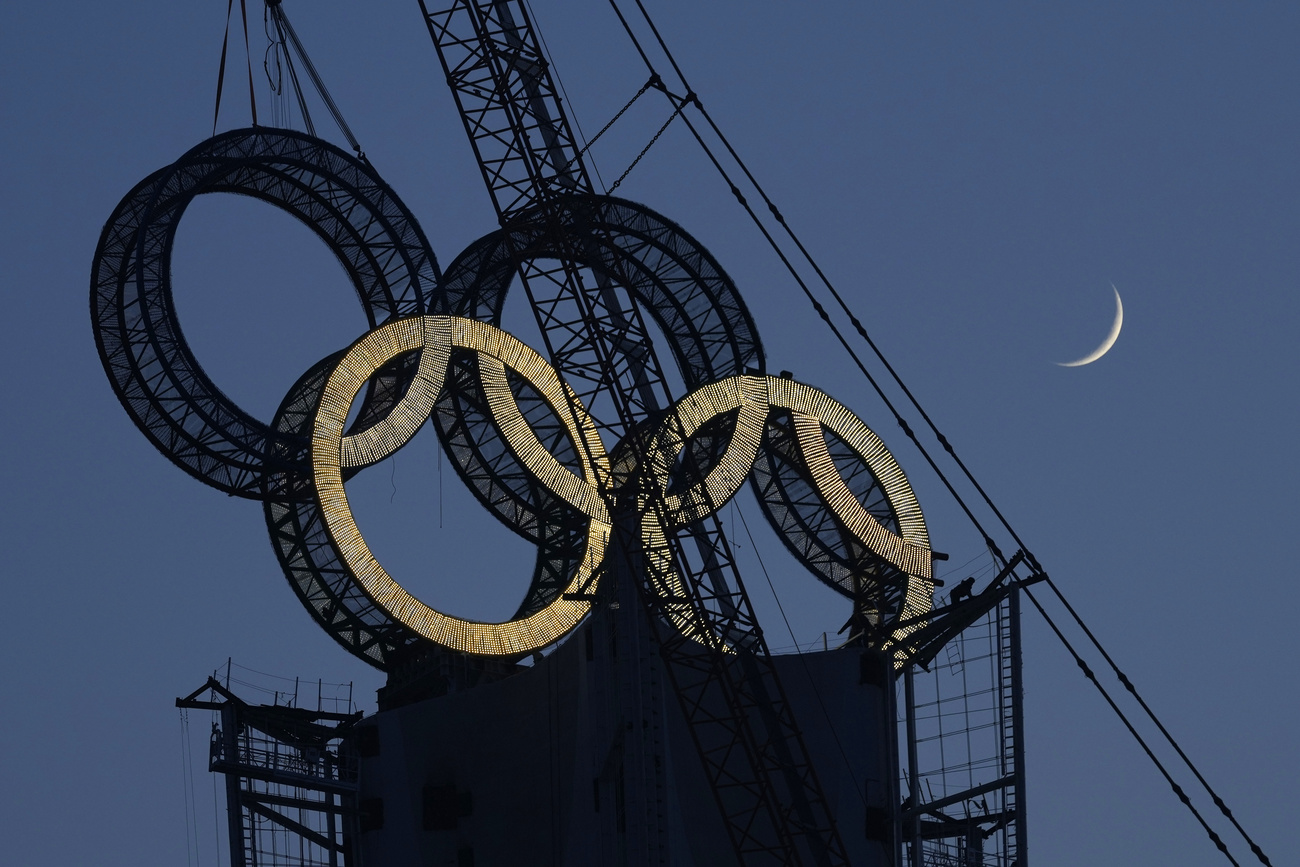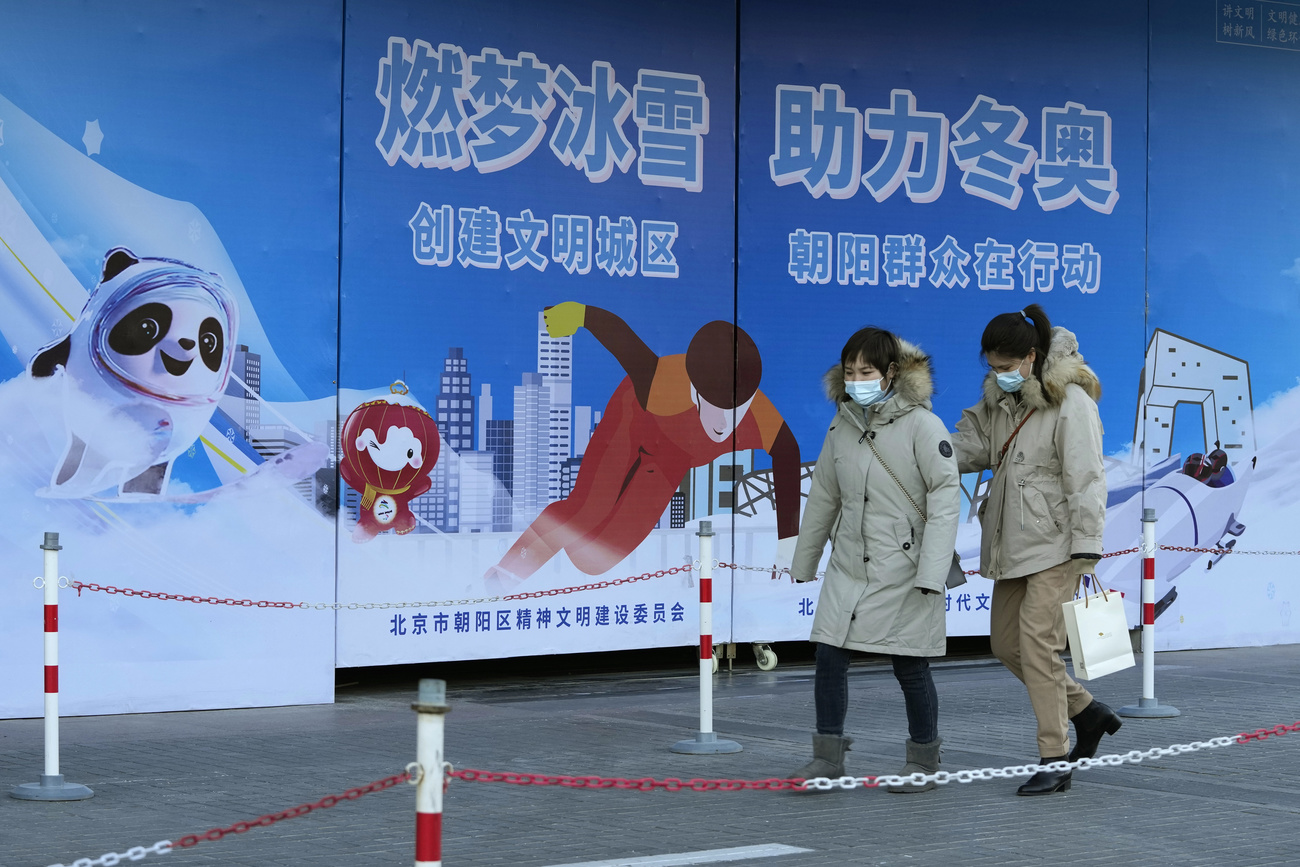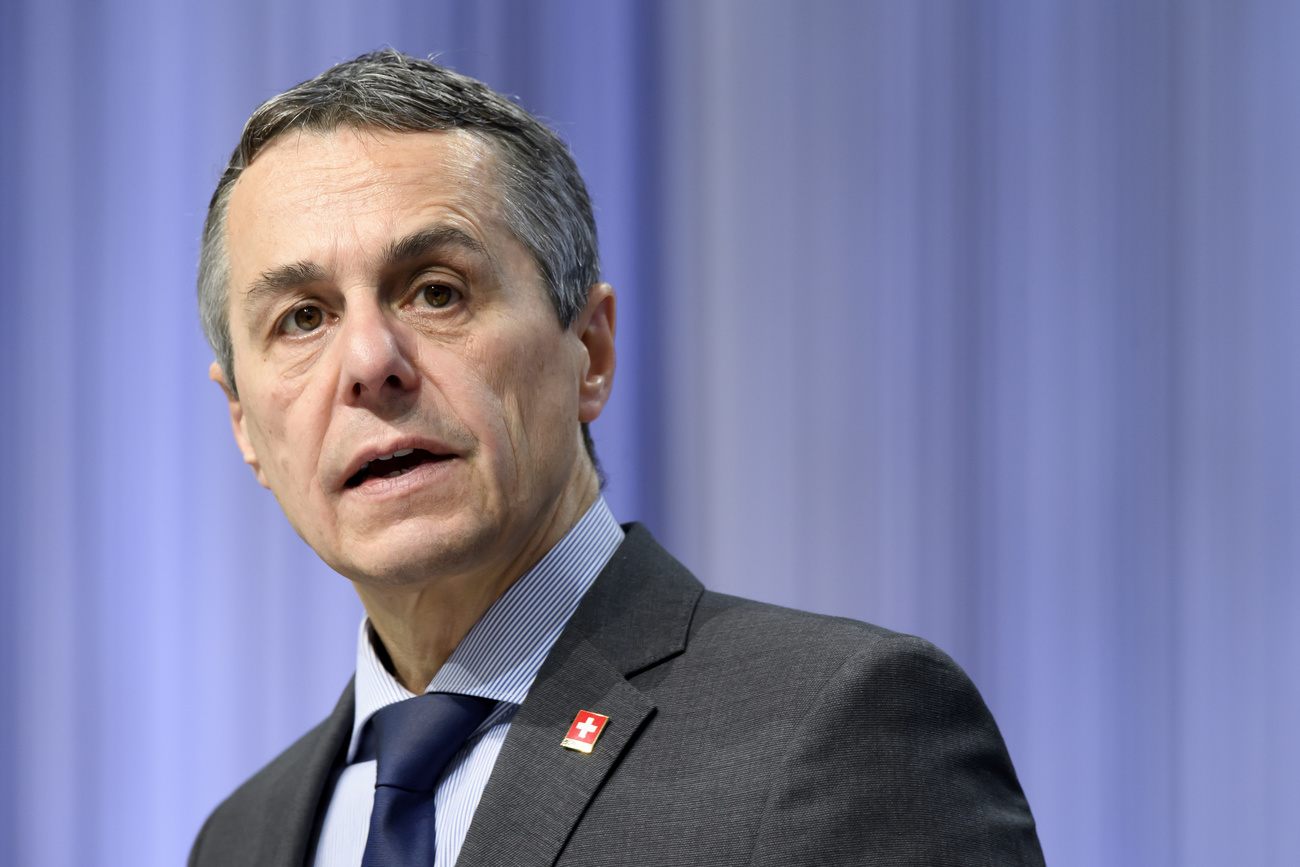
Swiss to send official representative to Beijing Olympics

A member of the Swiss government will in all likelihood travel to Beijing next month for the opening of the Winter Olympics. The pandemic, not international calls for a boycott, would be the only stumbling block.
At its meeting on Wednesday, the seven ministers agreed in principle that one of them would travel with the Swiss delegation to represent the country at the Games, which begin on February 4, the government spokesman said.
A definitive decision, subject to the pandemic situation, will be taken at a later date.
Switzerland will thus not be following the decision of some other western nations in recent weeks to diplomatically boycott the Olympics – sending athletes to compete, but no official representatives – as a protest against human rights issues in China.
Citing the treatment of the Uighur minority group in Xinjiang, as well as the situation for democracy activists in Hong Kong, states like the United States, Australia, New Zealand, the UK, Canada and Japan will not be officially represented at the opening of the Games – moves which China has said it will answer with “decisive counter-measures”.

More
Pressure builds for a diplomatic boycott of Beijing Games
In Switzerland in recent weeks, some have called for a similar stance: the issue has been raised in parliament, as well as by rights groups such as the Bern-based Society for Threatened Peoples, and the Tibetan Youth Association in Europe, which staged demonstrations against the Games in five Swiss cities on Tuesday.
Neutral Switzerland, which was one of the first Western nations to recognise the People’s Republic of China in 1950, has largely focused on trade in its relations with Beijing – since 2010 China has been its biggest trading partner in Asia and its third-largest trading partner globally after the European Union and the US.
However, the relations, largely covered by the country’s new China strategy unveiled last May, also involve diplomatic exchanges on political issues, including an annual “human rights dialogue”, set to resume in 2022 after a three-year gap.

More
Swiss-China human rights dialogue to resume in 2022

In compliance with the JTI standards
More: SWI swissinfo.ch certified by the Journalism Trust Initiative




























You can find an overview of ongoing debates with our journalists here . Please join us!
If you want to start a conversation about a topic raised in this article or want to report factual errors, email us at english@swissinfo.ch.